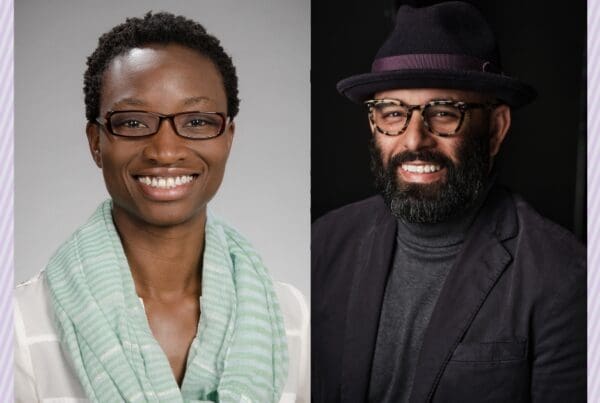Highlights | The truth behind police violence
- The Institute for Health Metrics and Evaluation has dedicated time and resources to illuminating the public health impacts of systemic racism in the U.S.
- New data shows that over half of the deaths from police violence in the United States from 1980 to 2021 were misclassified or unreported.
- Black, Hispanic and Indigenous peoples represented a high percentage of these deaths.
The researchers at the Institute for Health Metrics and Evaluation (IHME) recently conducted a study on police violence in the U.S. Their data uncovered findings that many police departments probably wish would stay hidden: Black people, Indigenous peoples, and Hispanic people are dying from police violence far more often than is being reported.
For decades, Black, Indigenous and People of Color (BIPOC) communities have had a strained relationship with police. The Black community has tried to bring the nation’s attention to the dismissed deaths of Black people in police care, but has only recently seen more traction and support from allies through the highly public deaths of victims such as George Floyd and Ahmaud Arbery.
“Recent high-profile police killings of Black people have drawn worldwide attention to this urgent public health crisis, but the magnitude of this problem can’t be fully understood without reliable data,” says Fablina Sharara, a researcher at IHME and co-lead author of this study.
Here’s what our researchers found about police violence, law enforcement’s under-reporting of fatalities, and the risk it presents to all minorities — but especially Black Americans.
Fatal police violence by race and state in the U.S.
The study conducted at IHME reviewed data on police violence in the U.S. from 1980 to 2021. Of that data, it was found that between 1980 to 2018, more than 55% of deaths from police violence were misclassified or unreported, with Black Americans being 3.5 times more likely to die from police violence than white Americans.
Does it matter how the deaths were classified?
It’s a simple answer: yes.
“Inaccurately reporting or misclassifying these deaths further obscures the larger issue of systemic racism that is embedded in many U.S. institutions, including law enforcement,” Sharara says. “Currently, the same government responsible for this violence is also responsible for reporting on it.”
So, what else is the data showing? Here’s a quick list:
- Nearly 60% of deaths of Black Americans from police violence were misclassified.
- Death from police violence was higher for men of any race or ethnicity than women.
- Indigenous people and Hispanic Americans experience the next-highest rates of police violence after Black Americans.
- Police violence increased by 38% for all races from the 1980s to the 2010s.
The data is here and it’s clear — the police have a bias toward minority communities, especially Black communities, and it continues to be a devastating public health crisis. Researchers have theorized some potential solutions, but it will take years of work, accountability, and support from all communities to begin to address the problem.
How to lower the rates of police violence
While large amounts of reform will need to take place before police violence is eradicated, we can start by doing what we can to keep them accountable.
The researchers recommend law enforcement use an open-source database. In other words, law enforcement should keep data freely available to everyone and anyone to use and republish as they wish.
“Open-sourced data is a more reliable and comprehensive resource to help inform policies that can prevent police violence and save lives,” Sharara says.
Making the data accessible is one piece to the puzzle, but the issue of police violence is a larger systemic issue that will need to be untangled. This researchers make sure to note the limitations within their research, such as not calculating or speaking on non-fatal injuries due to police violence, or other factors that could contribute to police violence that are crucial to understanding the larger picture.
“Our recommendation to utilize open-source data collection is only a first step,” says Eve Wool, a researcher at IHME and co-lead author of the study. “As a community we need to do more. Efforts to prevent police violence and address systemic racism in the USA, including body cameras that record interactions of police with civilians, along with de-escalation training and implicit bias training for police officers, for example, have largely been ineffective.”
What to do to help prevent police violence
Education goes a long way in prevention. Sharing studies like this one conducted by IHME, fostering hard conversations, and listening to BIPOC stories are some ways we can call for accountability where it matters.
On a larger scale, advocating for policies that help check the powers of police and protect the safety and integrity of all Americans is crucial as well.
“Policymakers should look to other countries, such Norway and the U.K., where police forces have been demilitarized and use evidence-based strategies to find effective solutions that prioritize public safety and community-based interventions to reduce fatal police violence,” Wool says.
Police violence shouldn’t happen. We can’t bring back those that we’ve lost, but we can give voices back to those who need it most.
More from the Media
The New York Times: More Than Half Of Police Killings Are Mislabeled, New Study Says
USA Today: More Than Half Of Police Killings In The US Are Unreported In Government Data, Study Finds
USA Today: Study: Police Kill More People In This State Than Any Other. And Many Deaths Go Unreported.
ABC News: 40-Year Study Shows More Than Half Of Police Killings Are Unreported
Rolling Stone: 17,000 Killings By Police Have Gone Uncounted Since 1980
Newsweek: Over Half Of Police Killings Are Unreported In Government Statistics—Study
The Washington Post: Killings By Police Are Undercounted By More Than Half, New Study Says
Reuters: Most U.S. Deaths From Police Violence Unrecorded In Main Database- Study
HealthDay News: Over Half Of Police Killings Aren’t Reported, Blacks Most Likely Victims
Photo Caption: Racial Injustice Memorial
Large wall in Portland, Oregon with notes and protests signs in support of African Americans and the Black Lives Matter movement and protest.


